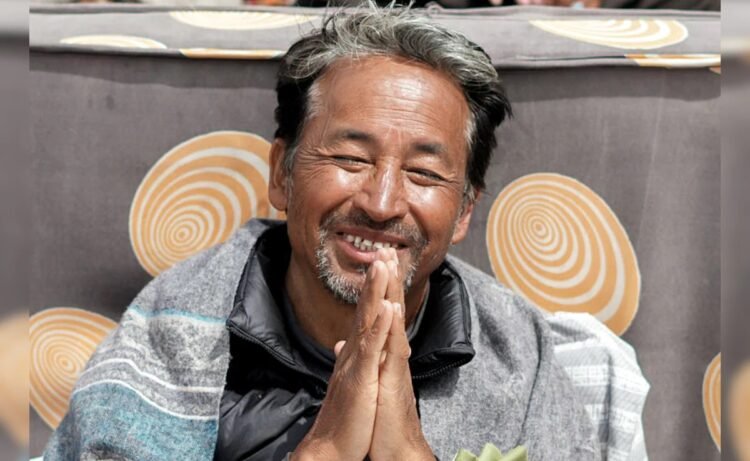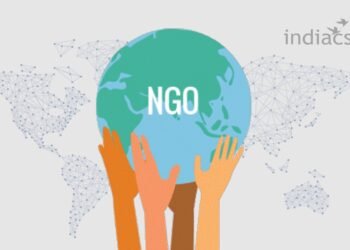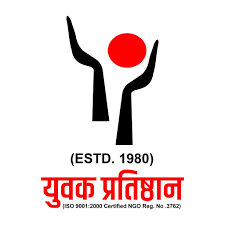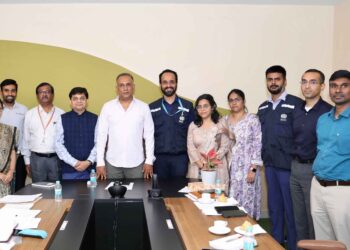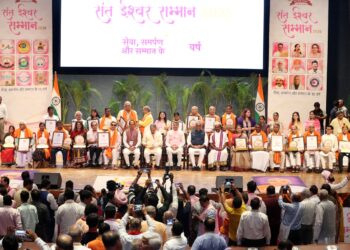The move comes amid growing protests in Leh for statehood and Sixth Schedule safeguards, underscoring tensions between regional autonomy demands and rules on foreign funding.
NEW DELHI (India CSR): The Ministry of Home Affairs (MHA) has revoked the Foreign Contribution Regulation Act (FCRA) registration of the Students Educational and Cultural Movement of Ladakh (SECMOL), an NGO founded by prominent climate activist and innovator Sonam Wangchuk, citing multiple violations of the law governing foreign funding for non-governmental organizations. The cancellation comes just a day after violent protests in Leh, Ladakh, over demands for statehood and inclusion under the Sixth Schedule of the Constitution, which resulted in at least four deaths and over 80 injuries, including 40 police personnel.
SECMOL, established by Wangchuk in 1988, focuses on educational reforms, sustainable development, and cultural preservation in the Himalayan region. It is known for initiatives like solar-powered schools and the innovative “Ice Stupa” project, which creates artificial glaciers to combat water scarcity. However, government sources allege that the organization engaged in repeated breaches of FCRA norms, including the improper deposit of Rs. 3.35 lakh in cash into its FCRA account in 2021-22, which is prohibited under Section 17 of the Act. Additional violations reportedly include mixing local funds with foreign contributions and using Rs. 4.9 lakh in foreign funds for activities related to “sovereignty” studies, which authorities claim could undermine national interest.
The MHA’s order highlighted a specific instance where SECMOL described a donation for “awareness on food security & sovereignty,” a term commonly used in sustainable agriculture to refer to community control over food production. However, officials interpreted this as potentially relating to “sovereignty of India,” leading to accusations of misuse. This interpretation has drawn criticism for being overly literal and politically motivated.
Wangchuk, who has been leading a peaceful climate fast and advocacy for Ladakh’s constitutional safeguards, responded sharply to the cancellation. In a statement, he described it as a “witch hunt” aimed at silencing dissent rather than addressing the region’s genuine concerns. “This is a tactic to avoid addressing Ladakh’s real issues,” Wangchuk said, emphasizing that his organization is shifting toward self-reliance and exporting knowledge rather than relying on foreign funds. He denied any role in inciting the recent violence, calling the government’s claims baseless.
The decision has sparked polarized reactions. PDP leader and former Jammu and Kashmir Chief Minister Mehbooba Mufti condemned the move, stating, “The Home Ministry’s cancellation of Sonam Wangchuk’s FCRA license is not governance; it’s frustration disguised as punishment. He is not anti-government or anti-national. He is simply holding the Union government to its own promises.” Mufti highlighted Wangchuk’s contributions to innovation in Ladakh, including ice stupas and solar schools.
On the other side, BJP’s IT cell head Amit Malviya supported the action, noting that violations by Wangchuk were flagged as early as 2007, long before the BJP came to power at the center. “Sonam Wangchuk’s NGO has finally had its FCRA license cancelled — a step that should have been taken long ago,” Malviya posted on X. The party has accused Wangchuk of provoking the Leh unrest, linking his statements to the mob violence that targeted the BJP office and Hill Council headquarters.
The Central Bureau of Investigation (CBI) has reportedly initiated a probe into SECMOL for FCRA compliance, with potential for further actions such as arrests under the Public Safety Act (PSA). Analysts suggest this crackdown is part of a broader government effort to regulate NGOs amid heightened scrutiny over foreign funding in sensitive border regions like Ladakh.
The protests in Ladakh stem from long-standing demands for greater autonomy, environmental protection, and safeguards against land and job losses to outsiders following the region’s designation as a Union Territory in 2019. Wangchuk’s 21-day hunger strike earlier this year drew national attention to these issues. Authorities imposed a curfew in Leh after the clashes, and calm has reportedly been restored with additional paramilitary deployments.
As the situation unfolds, questions remain about the balance between national security and the right to peaceful advocacy. Wangchuk’s supporters argue that targeting innovators like him could stifle grassroots development in vulnerable areas, while the government maintains that FCRA compliance is non-negotiable for all organizations.
Key Facts on FCRA Cancellation of Sonam Wangchuk’s SECMOL NGO
| Key Fact | Details |
|---|---|
| Organization Affected | Students Educational and Cultural Movement of Ladakh (SECMOL), founded by Sonam Wangchuk in 1988, focusing on educational reforms, sustainable development, and cultural preservation in Ladakh. |
| Action Taken | Ministry of Home Affairs (MHA) revoked SECMOL’s Foreign Contribution Regulation Act (FCRA) registration on September 26, 2025, due to alleged violations. |
| Key Violations Cited | Improper cash deposit of ₹3.35 lakh into FCRA account in 2021-22; mixing local and foreign funds; use of ₹4.9 lakh in foreign funds for “sovereignty” studies, interpreted as potentially undermining national interest. |
| Notable Initiatives of SECMOL | Solar-powered schools and the “Ice Stupa” project for artificial glaciers to address water scarcity. |
| Context of Cancellation | Occurred amid violent protests in Leh, Ladakh, on September 25, 2025, demanding statehood and Sixth Schedule inclusion, resulting in 4 deaths and over 80 injuries. |
| Sonam Wangchuk’s Response | Described the action as a “witch hunt” to silence dissent; denied inciting violence and emphasized shift to self-reliance. |
| Political Reactions | PDP’s Mehbooba Mufti condemned it as frustration disguised as punishment; BJP’s Amit Malviya supported it, noting violations flagged since 2007. |
| Further Actions | CBI probe initiated into SECMOL for FCRA compliance; potential arrests under Public Safety Act (PSA). |
| Broader Demands in Ladakh | Long-standing calls for autonomy, environmental protection, and safeguards against land/job losses since Ladakh became a Union Territory in 2019; highlighted by Wangchuk’s 21-day hunger strike. |
| Implications | Raises questions on balancing national security with peaceful advocacy; seen as part of broader NGO regulation in border regions. |
(India CSR)

